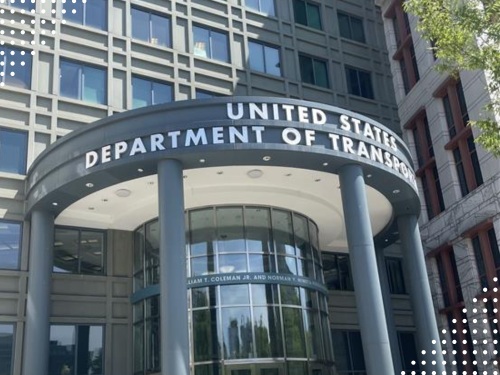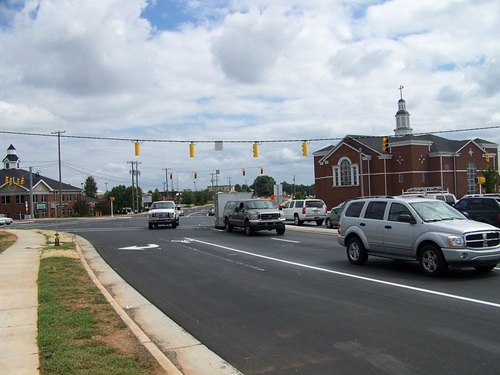The Federal Highway Administration is making $100 million available via a notice of funding opportunity or NOFO to help states and localities repair and replace existing but non-operational electric vehicle or EV charging systems.
[Above photo by the FHWA]
That program – officially called the Electric Vehicle Charger Reliability and Accessibility Accelerator – is funded via the $5 billion National Electric Vehicle Infrastructure or NEVI formula program launched in 2022 and created by the Infrastructure Investment and Jobs Act or IIJA enacted in 2021.
FHWA noted that the NEVI program sets 10 percent of its funds aside for grants to states and localities that require additional assistance to strategically deploy EV charging infrastructure.
Based on initial estimates of non-operational chargers, FHWA anticipates that the available $100 million in funding will likely cover the repair or replacement costs of all eligible projects, which will be awarded through a streamlined application process. This includes both publicly and privately owned chargers – so long as they are available to the public without restriction.
“Charging your electric vehicle should be as easy and convenient as filling up a gas tank – and this investment will make our EV charging network more reliable, full stop,” said FHWA Administrator Shailen Bhatt in a statement.
“We’re building a bigger EV charging network to keep up with driver demand, and we’re also going to make sure the currently available network is working when you need a charge,” he added.
FHWA added that this particular program will tap into the U.S. Department of Energy’s Alternative Fuels Data Center or AFDC Station Locator, which identifies offline stations as temporarily unavailable. A charger can be identified as temporarily unavailable for several reasons, ranging from routine maintenance to power issues.
As of early September, the AFDC indicated that out of 151,506 public charging ports, 6,261 or 4.1 percent were temporarily unavailable.
 Top Stories
Top Stories


